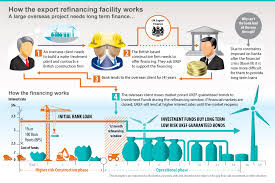How Refinancing Works - When you refinance your mortgage, you're actually replacing it with a brand new mortgage loan. In doing this, expect to go through a mortgage application process similar to that of your original mortgage.
Refinancing is often a sound financial choice that can allow you to meet a variety of needs:
- Reduce your monthly payments by taking advantage of lower interest rates or extending the repayment period
- Reduce your interest rate risk by switching from an adjustable-rate to a fixed-rate loan or from a balloon mortgage to a fixed-rate loan
- Reduce your interest cost over the life of your mortgage by taking advantage of lower rates or shortening the term of your loan
- Pay off your mortgage faster (accelerating the build-up of equity) by shortening the term of your loan
- Free up cash for major expenses or to consolidate debts (Both home equity financing and a cash-out refinance loan will accomplish this. Make sure to Evaluate each option before choosing.)
Can I lower my monthly mortgage payment?
A good rule of thumb for refinancing is that if interest rates are ½% to 5/8% lower than your current interest rate, it may be a good time to consider a refinance.If, however, you want to minimize your closing costs as much as possible the current rate should be at least 1% lower. Please check back often to see if rates are favorable to your refinance!
Does Refinancing Make Sense at this Time?
Many homeowners consider refinancing when interest rates suddenly fall or there's a change in financial circumstances. Make sure to weigh all the pros and cons in regard to your goals and current finances. Use our refinancing calculator to see if it makes sense for you to experiment with how different terms and number of payments will affect your monthly outlay and overall loan expense.


Posting Komentar